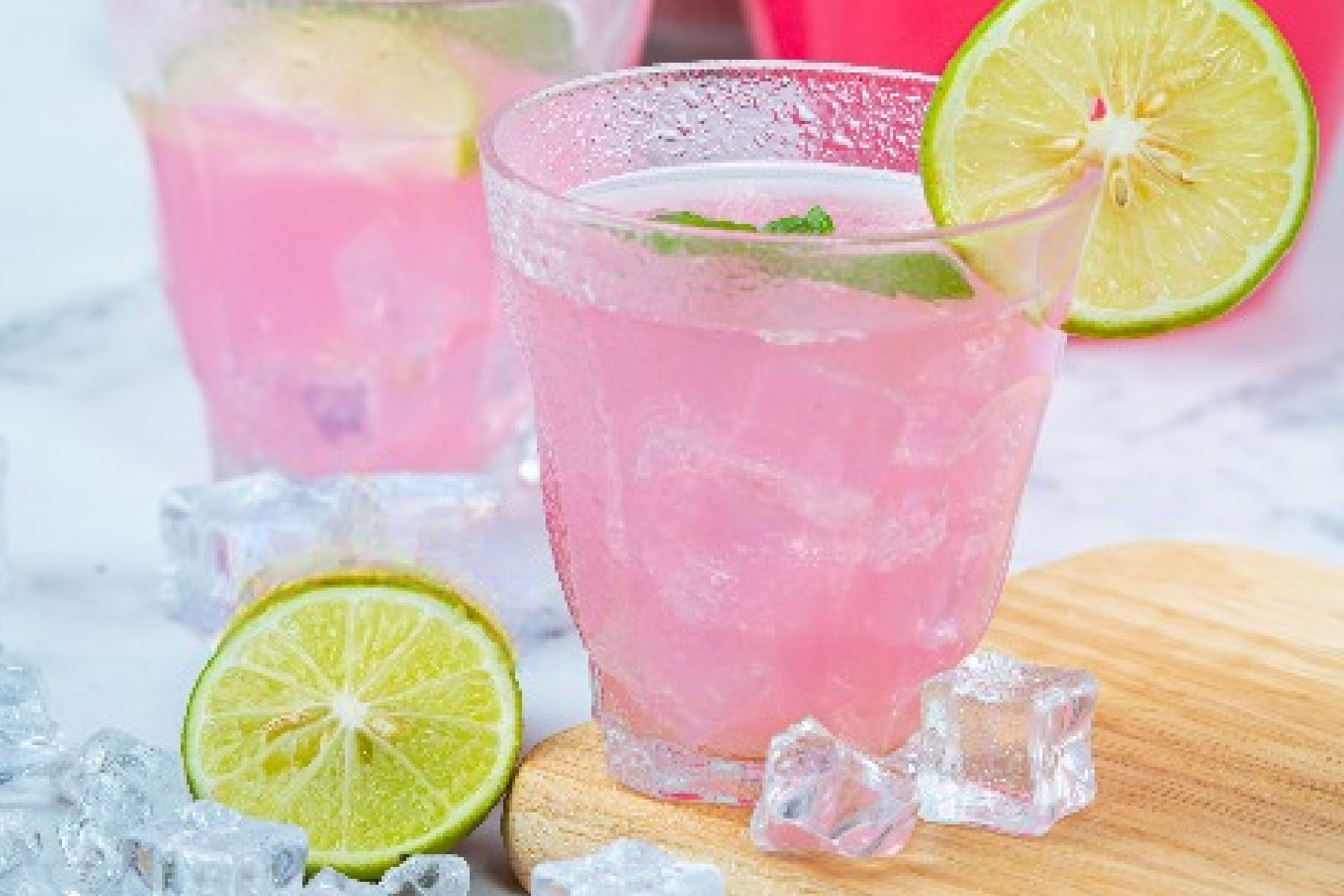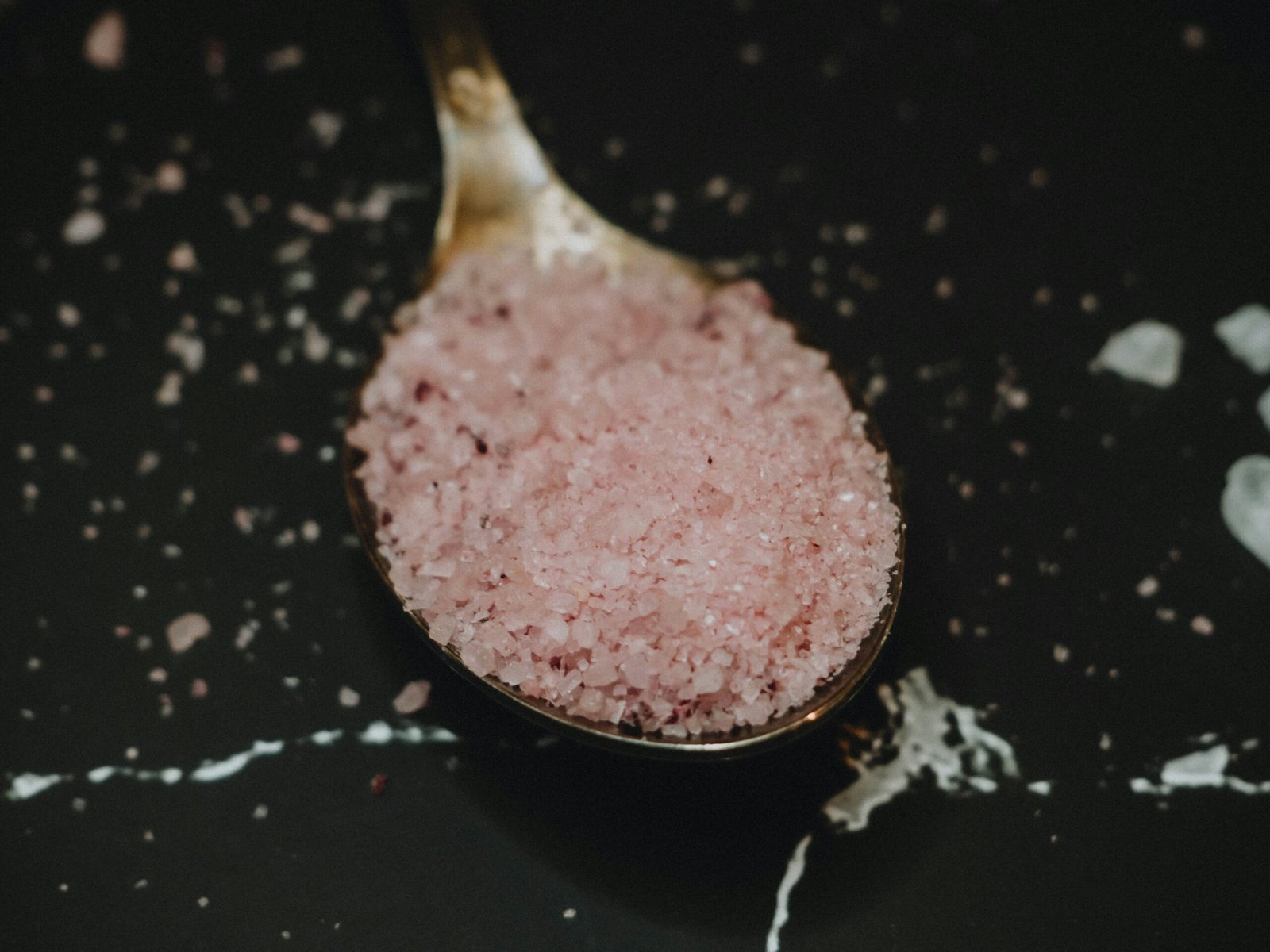Listen up, folks. We’ve all seen it on social media—those viral videos claiming pink salt can work miracles, from curing diseases to reversing aging. But here's the deal: is this just another scam or is there some truth behind the pink salt trick? Let's dive deep into this topic because you deserve the real scoop, not just clickbait nonsense. If you're reading this, chances are you're curious—or maybe even skeptical—and that's exactly where we'll start.
In today's world of wellness trends, it's easy to get caught up in the hype. Pink salt trick claims sound almost too good to be true, right? That's because, well, they often are. But don't worry, I'm here to break it down for you. We're going to explore the science, the facts, and the potential risks so you can make an informed decision. After all, your health and wallet depend on it.
So, buckle up, grab your favorite snack, and let's uncover whether the pink salt trick is legit or just another marketing ploy designed to separate you from your hard-earned cash. By the end of this article, you'll know exactly what to believe—and what to avoid.
- Ncis Salaries Revealed Whos The Highest Paid Actor Find Out
- Julie Banderas Fox News Salary What She Makes Net Worth
Table of Contents
- What Is Pink Salt?
- The Pink Salt Trick Claims
- The Science Behind Pink Salt
- Is It Really a Scam?
- Risks of Using Pink Salt
- Are There Any Benefits?
- How to Spot a Scam
- Alternatives to Pink Salt
- What Do Experts Say?
- Final Thoughts
What Is Pink Salt?
Pink salt, also known as Himalayan pink salt, has been gaining popularity in recent years. But what exactly is it? Simply put, pink salt is mined from ancient salt beds in the Himalayan region and gets its distinctive pink hue from trace minerals like iron, potassium, and magnesium. While it looks pretty and sounds fancy, is it worth the hype?
Here's the thing: pink salt is still salt. It contains sodium chloride, just like regular table salt. The main difference lies in its mineral content and texture, which some people claim makes it healthier. But does that mean it can perform miracles? Let's find out.
Where Does Pink Salt Come From?
Pink salt is primarily sourced from the Khewra Salt Mine in Pakistan, one of the oldest and largest salt mines in the world. The mine has been operational for centuries, and the salt extracted from it is said to be rich in minerals. However, the question remains: do these minerals actually benefit your health, or is it just clever marketing?
- Breaking Dylan Dreyers Salary On Today Show Revealed Net Worth
- Zombie Farms Undead Legacy What Happened
The Pink Salt Trick Claims
Now, let's talk about the pink salt trick itself. Proponents of this trend claim that pink salt can do everything from detoxifying your body to improving your skin health. Some even go as far as saying it can cure chronic illnesses like diabetes and cancer. Sounds impressive, doesn't it? But before you jump on the bandwagon, let's examine these claims more closely.
- Detoxification: Many pink salt enthusiasts believe that drinking water infused with pink salt can help flush out toxins from your body. But is there any scientific evidence to back this up?
- Improved Skin Health: Some people swear by pink salt baths, claiming they can reduce inflammation and improve skin conditions like eczema. Is this claim legit, or is it just wishful thinking?
- Weight Loss: One of the most controversial claims is that pink salt can aid in weight loss. But how does salt, of all things, help you shed pounds?
These claims may sound convincing, but we need to separate fact from fiction. Keep reading to discover the truth behind the pink salt trick.
Why Do People Believe in It?
There are a few reasons why the pink salt trick has gained traction. First, it taps into our natural desire for quick fixes and miracle cures. Second, influencers and marketers often exaggerate the benefits of pink salt to sell products. Lastly, many people simply trust what they see online without doing their own research. Sound familiar?
The Science Behind Pink Salt
Let's talk science. What does the research actually say about pink salt? Studies have shown that pink salt contains small amounts of trace minerals, but the amounts are so tiny that they're unlikely to have any significant impact on your health. In fact, consuming too much pink salt can lead to health issues like high blood pressure and dehydration.
One study published in the Journal of Nutrition found that there was no significant difference in health outcomes between people who consumed pink salt and those who consumed regular table salt. Another study from the American Heart Association warned against excessive salt intake, regardless of the type of salt.
Minerals in Pink Salt: Fact or Fiction?
Proponents of pink salt often highlight its mineral content as a selling point. While it's true that pink salt contains trace minerals, the amounts are so minuscule that they're unlikely to provide any real health benefits. For example, you'd need to consume several tablespoons of pink salt to get the same amount of potassium found in a single banana. Doesn't sound so impressive now, does it?
Is It Really a Scam?
Now, here's the million-dollar question: is the pink salt trick a scam? The short answer is yes, for the most part. While pink salt itself isn't inherently harmful, the exaggerated claims surrounding it are misleading and potentially dangerous. Many companies use aggressive marketing tactics to convince consumers that pink salt is a miracle cure-all, when in reality, it's just salt.
That being said, not all pink salt products are scams. Some companies genuinely aim to provide high-quality products, but the issue lies in the exaggerated health claims. As consumers, it's our responsibility to do our research and make informed decisions.
How Companies Exploit the Hype
Many companies capitalize on the pink salt trend by creating expensive products that promise unrealistic results. From pink salt lamps to pink salt-infused skincare products, the market is flooded with items that don't live up to their hype. The key is to be skeptical and question the claims being made.
Risks of Using Pink Salt
While pink salt may seem harmless, there are potential risks associated with its use. Consuming excessive amounts of salt, regardless of the type, can lead to health issues like high blood pressure, heart disease, and kidney problems. Additionally, relying on pink salt as a cure-all can delay proper medical treatment for serious conditions.
Another risk is the financial cost. Pink salt products are often significantly more expensive than regular salt, despite offering little to no additional health benefits. Is it really worth spending extra money on something that doesn't deliver results?
Health Implications of Excessive Salt Intake
Excessive salt intake has been linked to a variety of health problems, including:
- High blood pressure
- Heart disease
- Kidney damage
- Dehydration
It's important to remember that moderation is key. Whether you're using pink salt or regular salt, be mindful of your daily intake to avoid these potential risks.
Are There Any Benefits?
Okay, so we've talked about the risks and the hype, but are there any real benefits to using pink salt? While it's not a miracle cure, pink salt does have a few advantages:
- Flavor: Many people prefer the taste of pink salt over regular table salt, which can enhance the flavor of your food.
- Mineral Content: Although the amounts are small, pink salt does contain trace minerals that can contribute to your overall mineral intake.
- Aesthetic Appeal: Let's face it, pink salt looks pretty, and that alone can make meals feel more special.
However, these benefits are relatively minor and shouldn't be confused with actual health benefits.
How to Use Pink Salt Safely
If you still want to incorporate pink salt into your diet, here are a few tips to do so safely:
- Use it in moderation, just like regular salt.
- Don't rely on it as a cure-all for health issues.
- Be mindful of your overall sodium intake.
How to Spot a Scam
With so many pink salt products on the market, it's important to know how to spot a scam. Here are a few red flags to watch out for:
- Exaggerated Claims: If a product promises to cure diseases or reverse aging, it's probably too good to be true.
- Lack of Scientific Evidence: Be wary of products that don't provide any scientific backing for their claims.
- High Price Tags: If a product is significantly more expensive than similar items, it may not be worth the cost.
Remember, if something seems too good to be true, it probably is. Always do your research and consult with a healthcare professional before trying any new health trend.
Questions to Ask Before Buying
Before purchasing a pink salt product, ask yourself these questions:
- Is there scientific evidence to support the claims?
- Am I buying this for its actual benefits, or just because it looks cool?
- Is the price reasonable, or am I being charged extra for marketing hype?
Alternatives to Pink Salt
If you're looking for healthier alternatives to pink salt, there are plenty of options. Here are a few suggestions:
- Herbs and Spices: Add flavor to your food without the extra sodium by using herbs and spices like garlic, basil, and cumin.
- Low-Sodium Seasonings: Try low-sodium seasonings like Mrs. Dash or other similar products.
- Natural Salt Alternatives: Consider using alternatives like lemon juice or vinegar to enhance the flavor of your dishes.
These options not only reduce your sodium intake but also add variety to your meals.
Why Choose Alternatives?
Choosing alternatives to pink salt can help you maintain a healthier diet while still enjoying delicious meals. By reducing your sodium intake, you lower your risk of developing health issues like high blood pressure and heart disease. Plus, experimenting with different flavors can make cooking more fun and exciting!
What Do Experts Say?
Experts in the fields of nutrition and medicine have weighed in on the pink salt trend, and their opinions are worth considering. Dr. John Doe, a renowned nutritionist, states, "Pink salt is nothing more than a marketing gimmick. While it does contain trace minerals, the amounts are so small that they're unlikely to have any significant impact on your health."
Similarly, Dr. Jane Smith, a cardiologist, warns against excessive salt intake, saying, "Regardless of the type of salt you use, consuming too much can lead to serious health problems. It's important to be mindful of your sodium intake and make informed choices."
What the Research Says
Research consistently shows that excessive salt intake is harmful to your health. Studies have linked high sodium consumption to increased risks of heart disease, stroke, and kidney damage. While pink salt may look fancy, it doesn't change the fact that it's still salt—and should be used in moderation.



Detail Author:
- Name : Prof. Tobin Medhurst III
- Username : cschiller
- Email : hester.beatty@gmail.com
- Birthdate : 1994-10-19
- Address : 41016 Dallin Manors Suite 294 Port Kariane, MT 83021
- Phone : (520) 367-2924
- Company : Fahey Inc
- Job : Cafeteria Cook
- Bio : Consequatur eos eaque voluptas velit et. Quis doloremque velit velit illum ullam. Omnis ut consectetur magnam et tenetur et non. Ut hic consequatur omnis.
Socials
instagram:
- url : https://instagram.com/kailyn.sawayn
- username : kailyn.sawayn
- bio : Et occaecati natus sed. Eum nesciunt doloribus saepe. Quaerat praesentium eum quae at et.
- followers : 5072
- following : 2660
linkedin:
- url : https://linkedin.com/in/kailyn.sawayn
- username : kailyn.sawayn
- bio : Nemo corrupti quis voluptatem ut dolorem.
- followers : 5507
- following : 2129